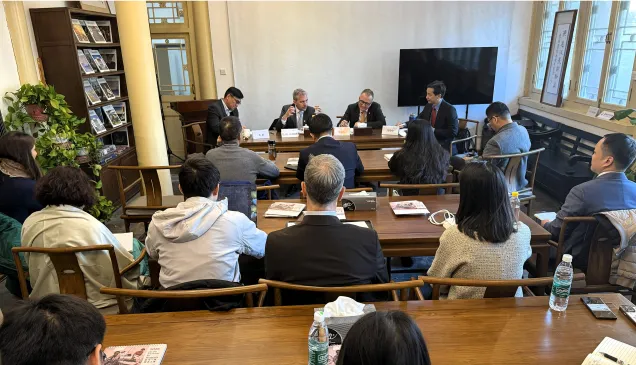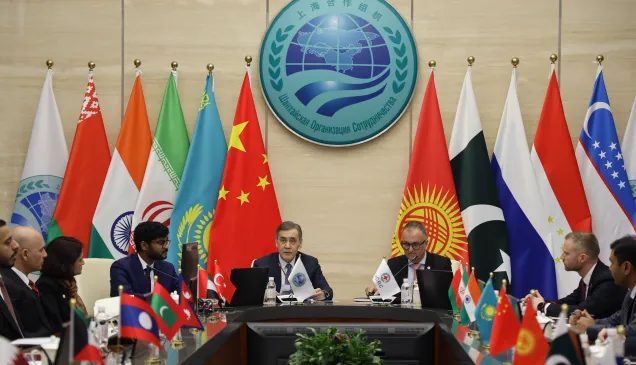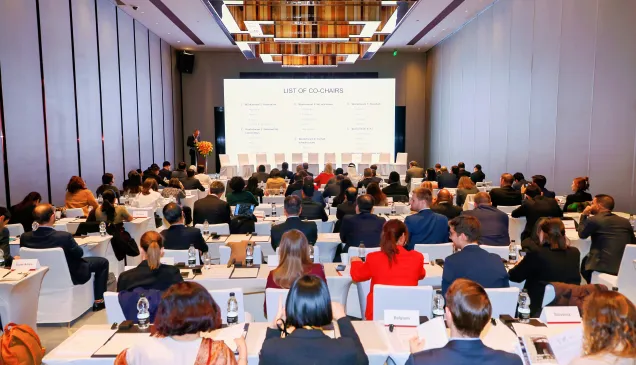Humanitarian Education Program: revealing humanity behind rules
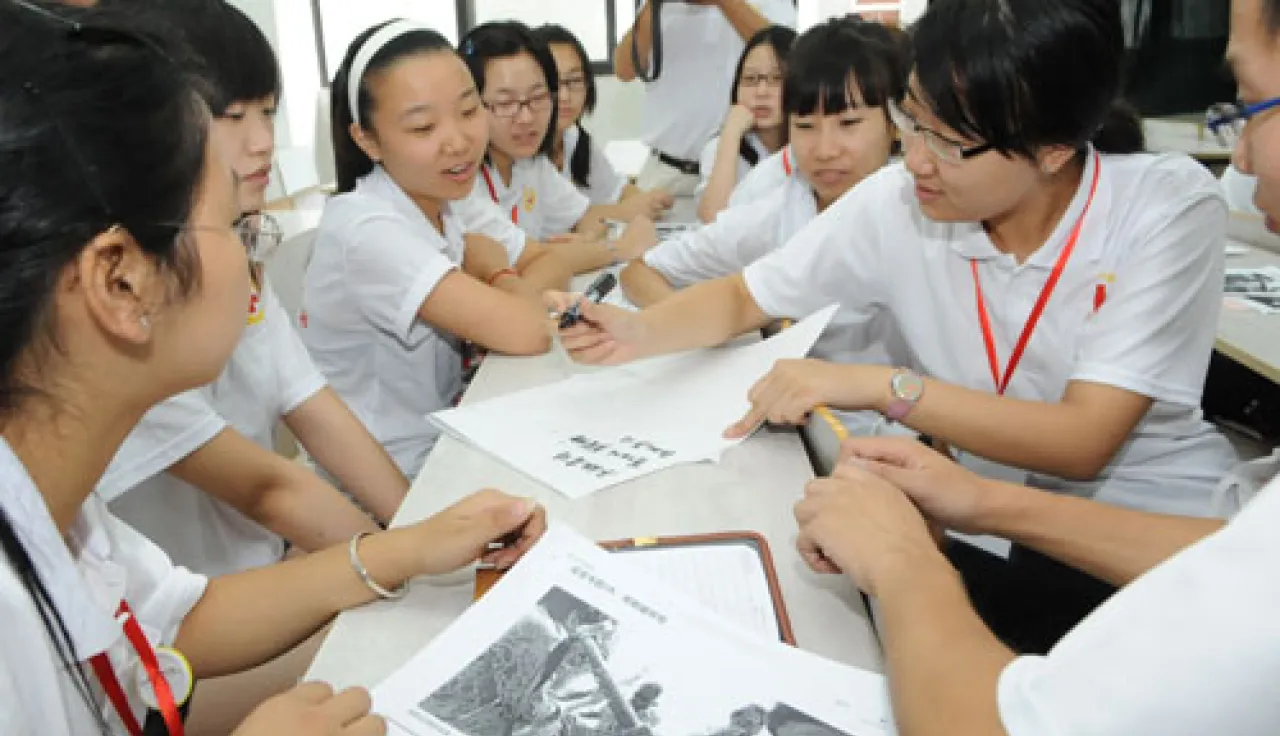
The year 2025 marks the 20th anniversary of the International Committee of the Red Cross (ICRC) in China and the 20th year of the Humanitarian Education Program (HEP). Since its launch in 2005, the program has grown from a single teacher training workshop into a nationwide initiative that reaches tens of thousands of students across dozens of provinces.
The story began in Shanghai in the summer of 2005. Ms. Zhu Hong, a newly graduated teacher, joined the first HEP training organized by the ICRC and the Red Cross Society of China (RCSC). That experience did more than introduce her to international humanitarian law (IHL); it transformed her understanding of education and compassion. Over the past two decades, she has become a master trainer, mentoring hundreds of teachers nationwide. As she puts it, ‘This program doesn’t just teach rules — it reveals the humanity behind them.’
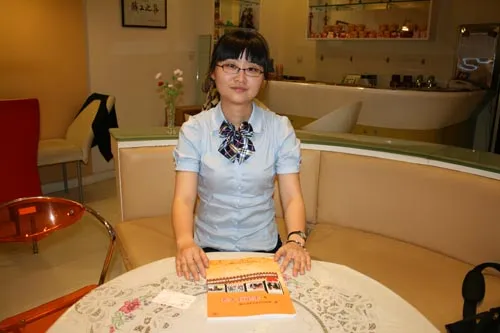
Zhu Hong, Zhongshan School, Shanghai, China.
Jointly launched by the ICRC and RCSC, HEP introduces secondary and university students to IHL through real-life dilemmas and ethical questions that arise in conflict. Using interactive teaching methods and case studies, students learn why rules in war exist, how they protect human life, and what it means to make humane choices in difficult circumstances. The program encourages critical thinking and empathy, helping students understand humanitarian action and inspiring them to contribute to solutions for global challenges.
The program’s impact is visible not only in numbers but in people’s voices. To date, HEP has been implemented in over 700 schools and universities across 70 cities in 16 provinces and municipalities, directly engaging more than 300,000 students. Many alumni have gone on to lead Red Cross Youth activities or work in the humanitarian field. As one former student reflected, ‘This program changed how I see the world.’ Another added, ‘I used to think humanitarian work was only for professionals. Now I know I can be part of it too.’ These reflections capture the program’s true purpose — nurturing not only knowledge, but humanity.
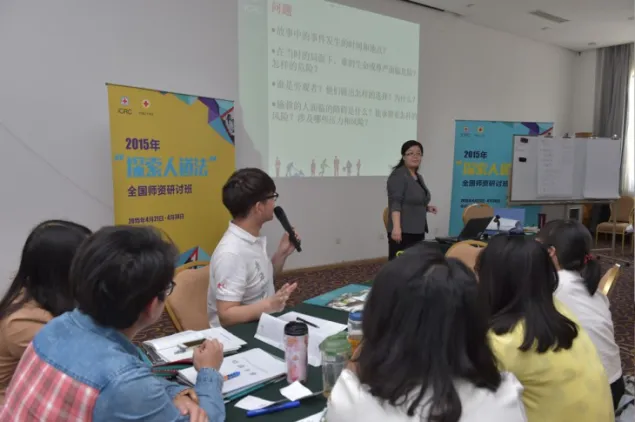
In 2015, Ms. Ye Yinghua was conducting a trainers' training on Exploring Humanitarian Law.
A key milestone in strengthening school-based humanitarian education came in 2020 with a joint notice by the RCSC and the Ministry of Education on Further Strengthening and Improving Red Cross Work in Schools in the New Era. The notice energized school-level Red Cross activities, including humanitarian education, and signalled official backing for integrating the International Red Cross and Red Crescent Movement and related humanitarian principles content into classroom practice. This step bridged global norms with national educational aims, enabling teachers to bring international ideas into local classrooms.
Today, HEP has evolved beyond IHL. It serves as a platform for moral education, critical thinking, and global citizenship. Students learn emotional intelligence, ethical decision-making, and civic responsibility. Within China’s broader education system, the program promotes curiosity, empathy, and a sense of responsibility. It encourages young people to look at issues from multiple perspectives, think independently, and take action to uphold human dignity.
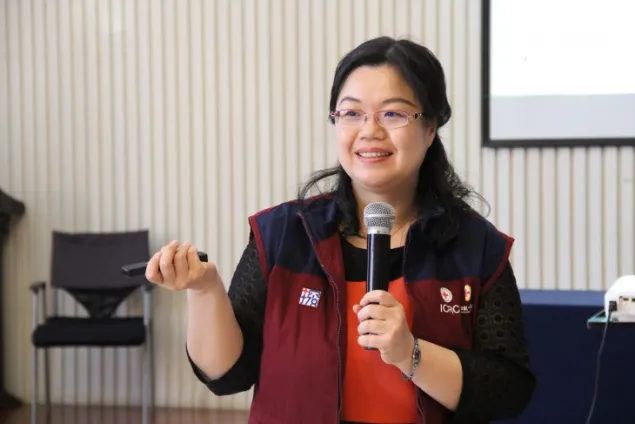
Ms. Yinghua Ye, Head of Training and Education at Cooperation Department of the ICRC Regional Delegation for East Asia.
Since joining the ICRC in 2013, Ms. Yinghua Ye has overseen HEP’s expansion from four to sixteen provinces. Known affectionately within the organization as ‘the teacher,’ she highlights that HEP helps young people in China grow into conscientious global citizens who can work together for a shared future.
Initially designed for students aged 13 to 18, the program’s success led to its expansion into universities, reflecting the belief that humanitarian values are relevant at every stage of education — and that universities provide fertile ground for shaping future leaders.
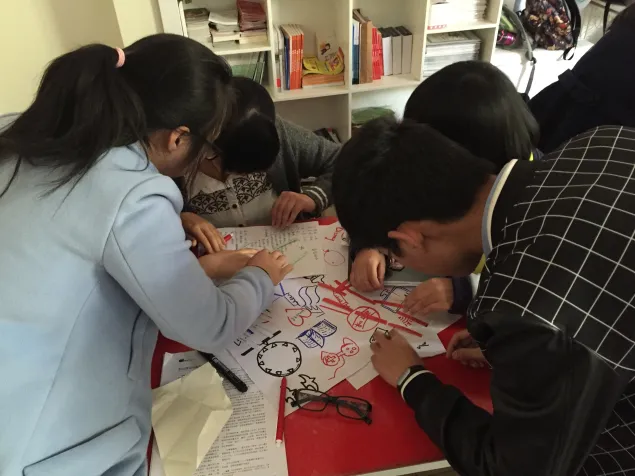
In 2016, Peer Education in Exploring Humanitarian Law program was launched in Shanghai, China.
The program is now wholly organized and managed by the Red Cross Society of China, with the support of education authorities. The ICRC continues to contribute to the programme financially and technically, ensuring alignment with international standards while respecting local context. This arrangement preserves the program’s roots in Chinese realities while upholding universal humanitarian norms.
What Ms. Zhu Hong learned two decades ago remains true today: laws matter because they protect people who cannot protect themselves. The strength of HEP lies in showing students the human stories behind those laws; families fleeing danger, children without food, medical workers risking their safety for others.
In a country as vast and diverse as China, with deep traditions of compassion and social responsibility, the program draws on both international humanitarian principles and traditional Chinese values. Concepts such as benevolence, righteousness, and harmony resonate strongly with the program’s mission. Together, they remind us that protecting life and dignity is not just a global goal, it is a shared duty of a caring and strong society.

